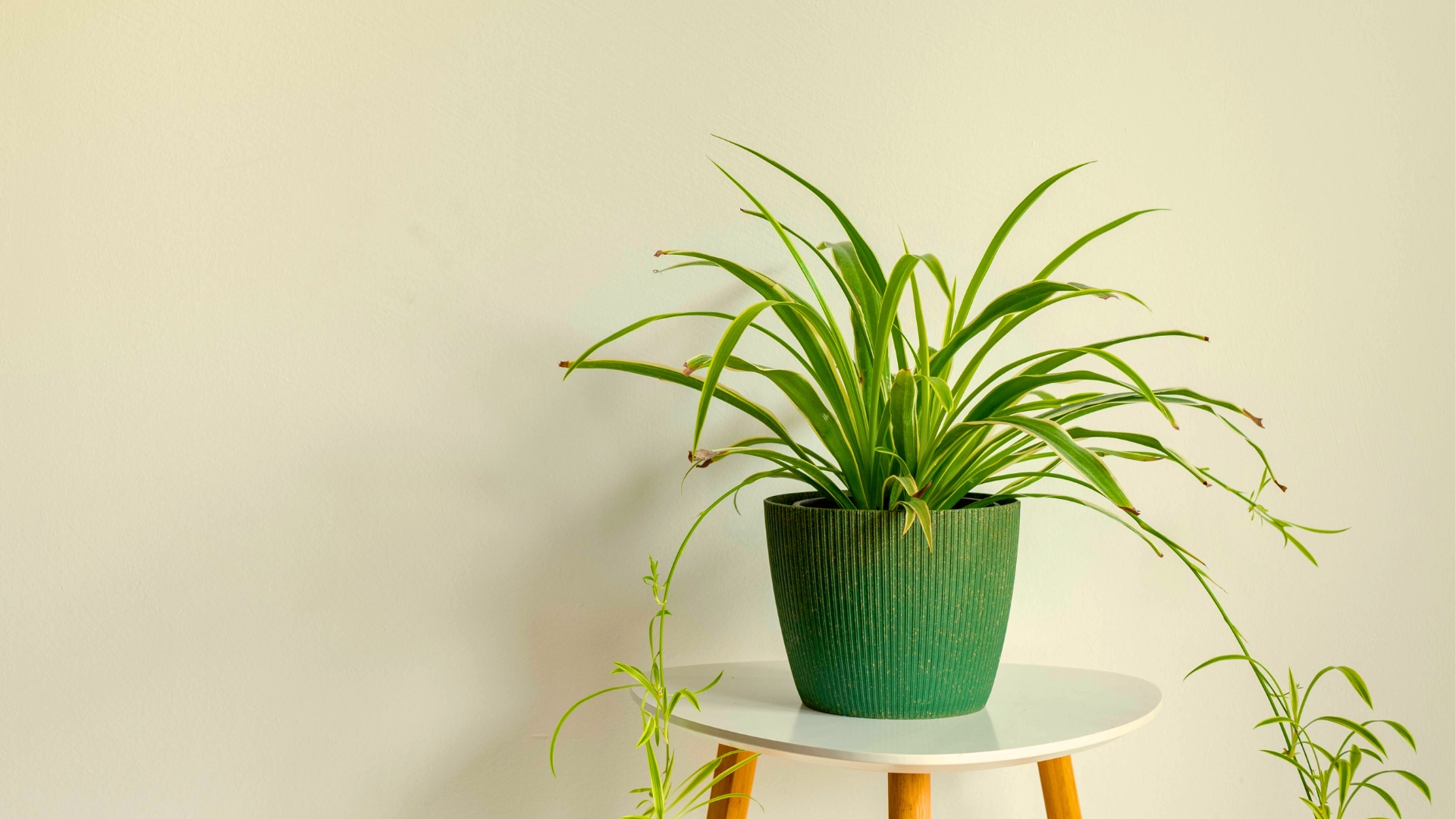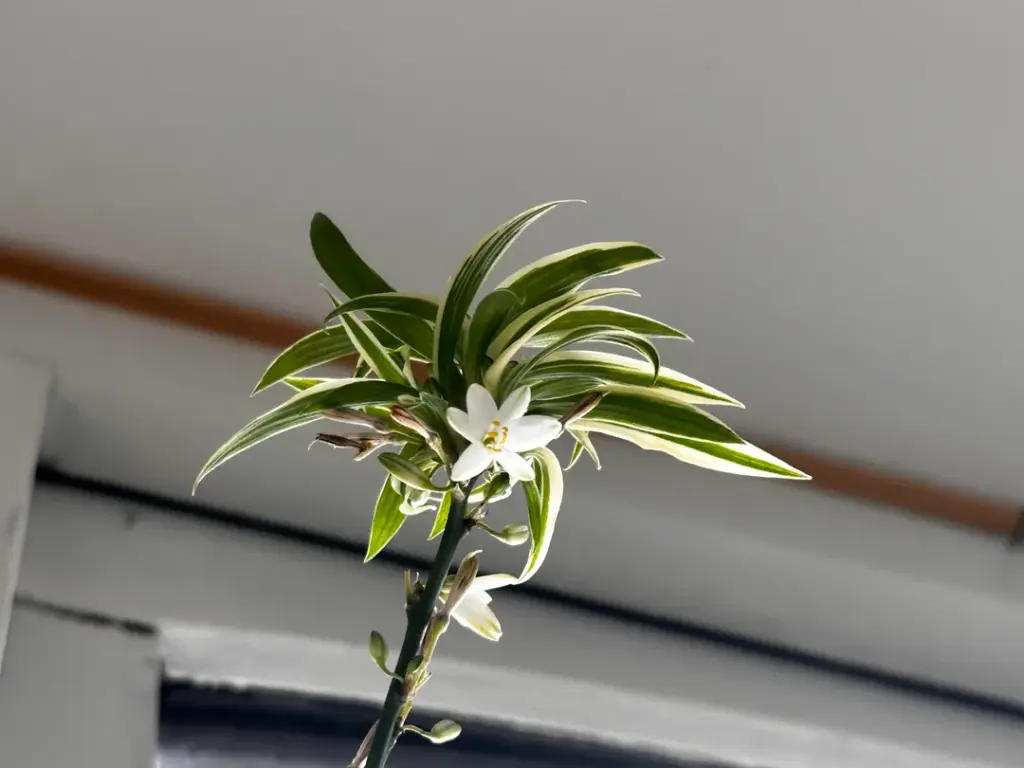10 Issues That Could Be Preventing Your Spider Plant From Making Pups
Spider plants are usually generous with pups, but sometimes they hold back. I’ve had moments of wondering why mine wasn’t producing those adorable little offshoots.
The truth is, a few common issues can slow things down. From lighting to watering habits, small tweaks can make a big difference. Once you sort them out, your spider plant will be back to making pups in no time.
1. Insufficient Light

Your plant might be lurking in a dark corner when it craves bright, indirect sunlight. Too little light means it can’t generate enough energy to produce those dangling babies.
Move your green friend to a spot near a window with filtered light. Morning sun works wonderfully, but avoid harsh afternoon rays that could scorch the leaves.
2. Immature Plant
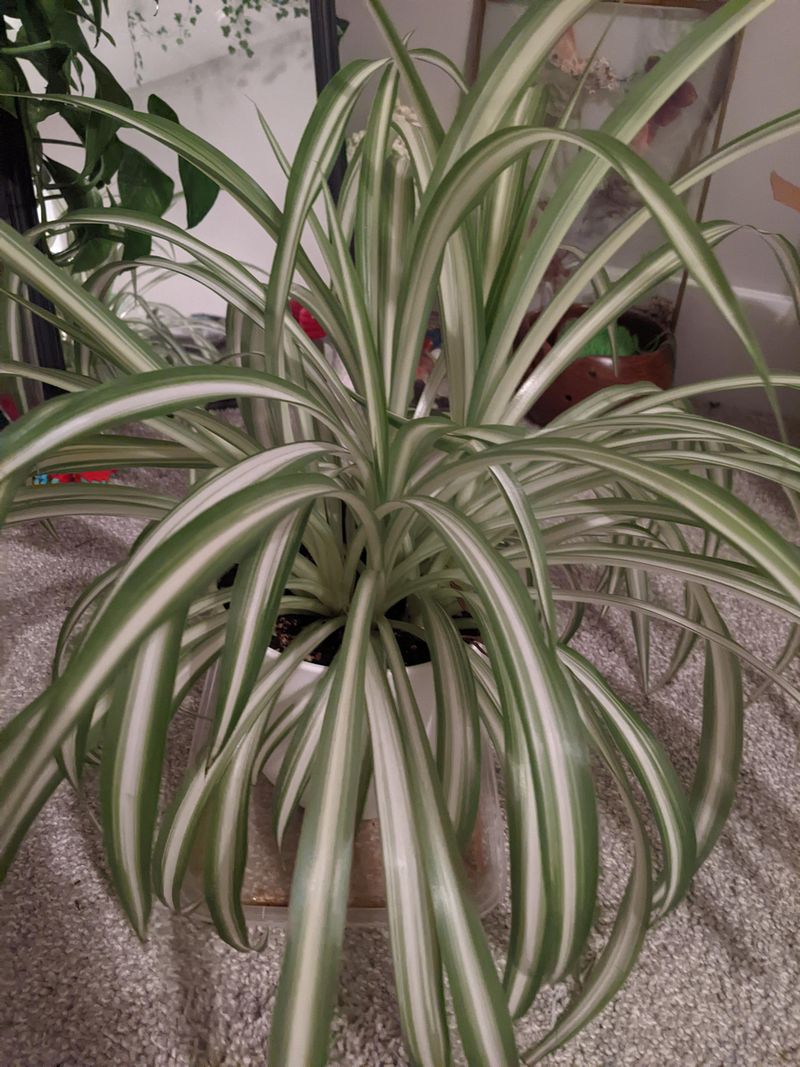
Young spider plants focus on developing their own root systems and foliage before they start making pups. Your plant might simply be too young to reproduce yet.
Patience is key here! Most spider plants need about a year to reach maturity before they begin producing offspring. Keep providing good care, and your plant will eventually reward you.
3. Incorrect Pot Size
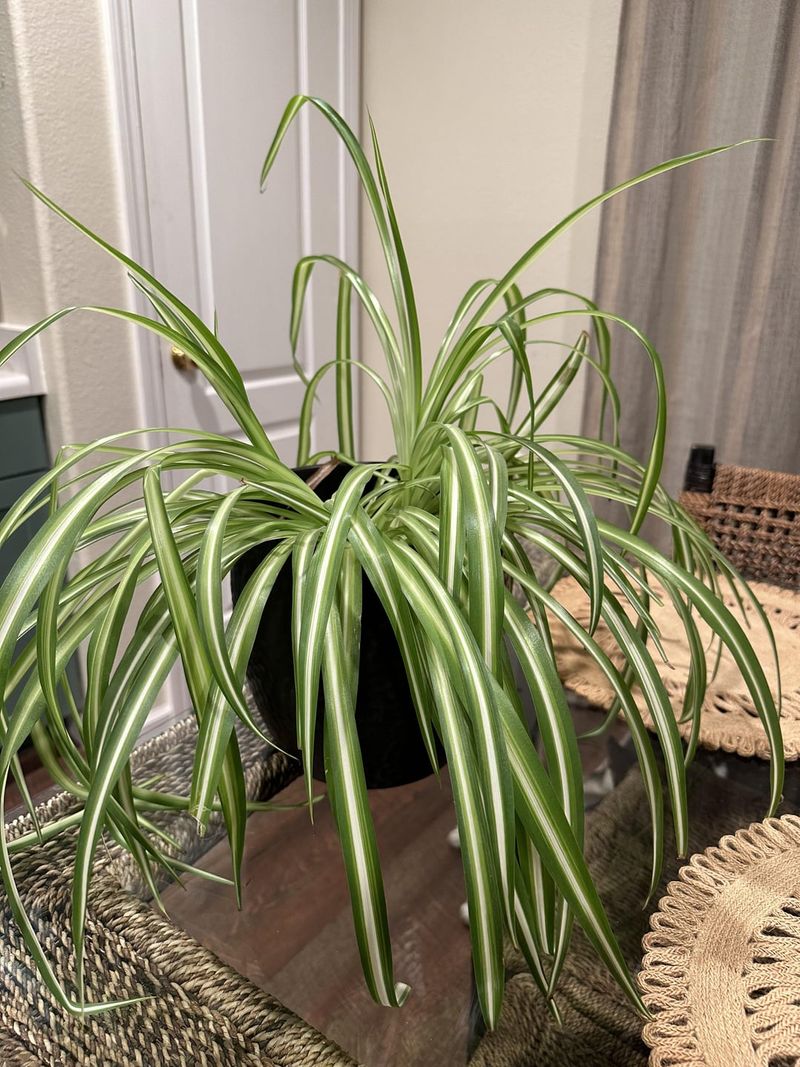
Surprisingly, spider plants actually prefer being slightly root-bound to trigger pup production. A pot that’s too spacious might be keeping your plant too comfortable.
Consider whether you’ve recently repotted into a much larger container. If so, your plant might be enjoying the extra room too much to feel the reproductive pressure that comes with tight quarters.
4. Nutrient Imbalance
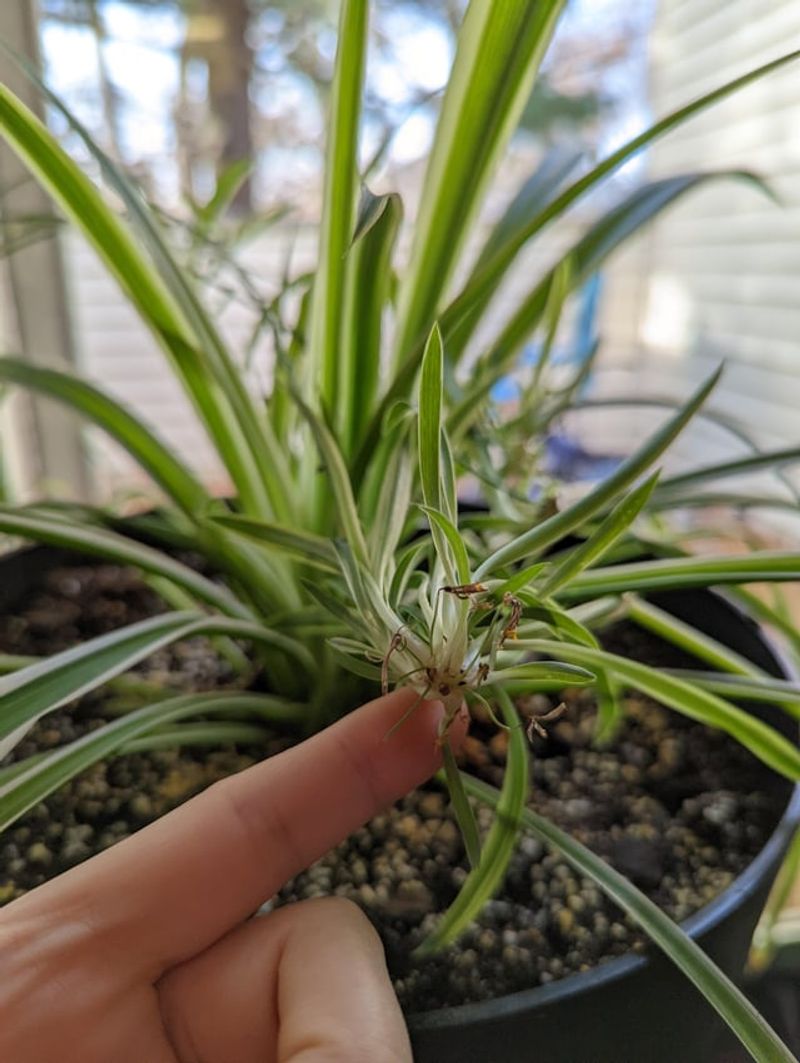
Too much nitrogen promotes lush foliage growth but discourages flowering and pup development. Your fertilizer might be sending the wrong signals to your plant.
Check your fertilizer’s NPK ratio and opt for one with less nitrogen and more phosphorus during growing season. Alternatively, try backing off on fertilizer altogether for a few months to see if that triggers pup production.
5. Improper Watering
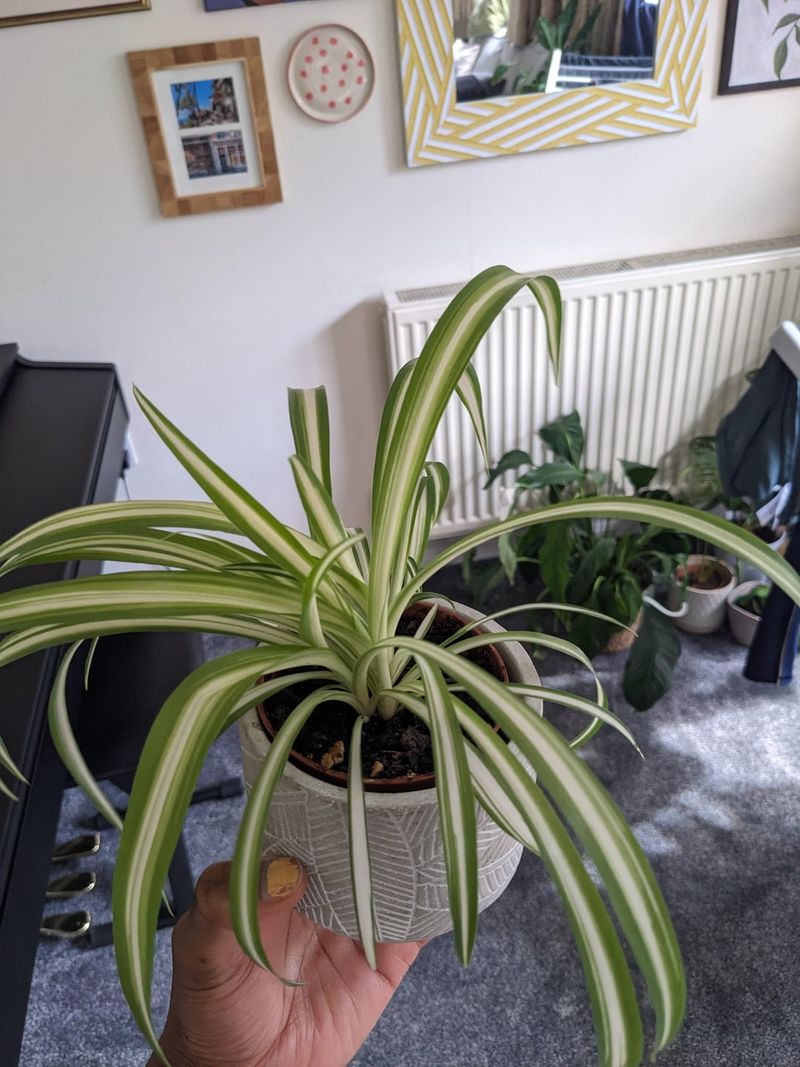
Chronic overwatering or underwatering stresses your plant, forcing it to focus on survival rather than reproduction. The soggy or parched soil creates an emergency situation for your green friend.
Adjust your watering schedule to allow the top inch of soil to dry out between waterings. Spider plants prefer slightly dry conditions over constantly wet feet, which can lead to root rot.
6. Temperature Extremes
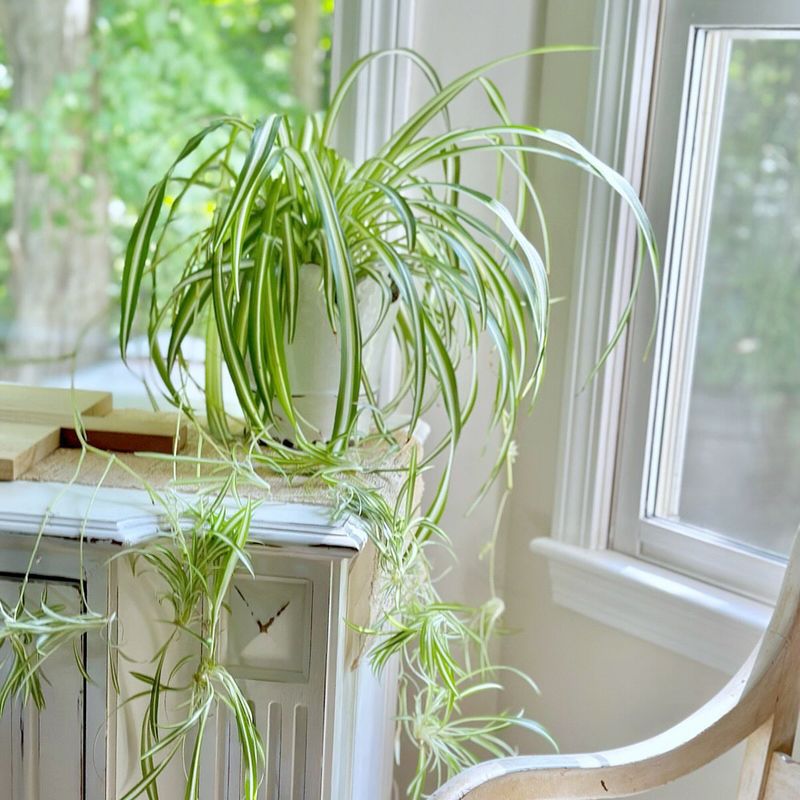
Spider plants thrive in temperatures between 65-75°F. When exposed to chilly drafts or hot, dry air, they enter survival mode and put reproduction on hold.
Move your plant away from heating vents, air conditioners, and cold windows. These temperature fluctuations might seem minor to us but can significantly impact your plant’s willingness to produce pups.
7. Low Humidity
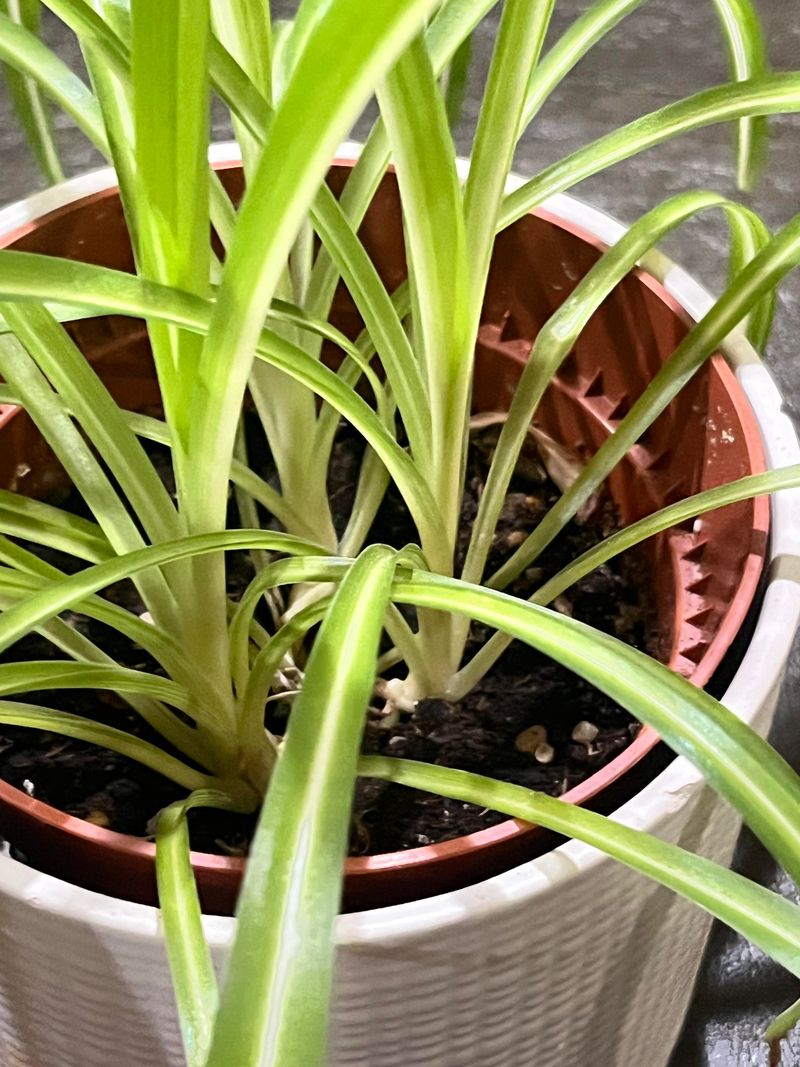
Native to tropical regions, spider plants appreciate moisture in the air. Dry indoor environments, especially during winter when heaters run, can halt pup production.
Boost humidity by grouping plants together, using a pebble tray with water, or running a humidifier nearby. Your spider plant might respond by sending out flowering stems once it feels the comfort of its natural habitat.
8. Pest Infestation
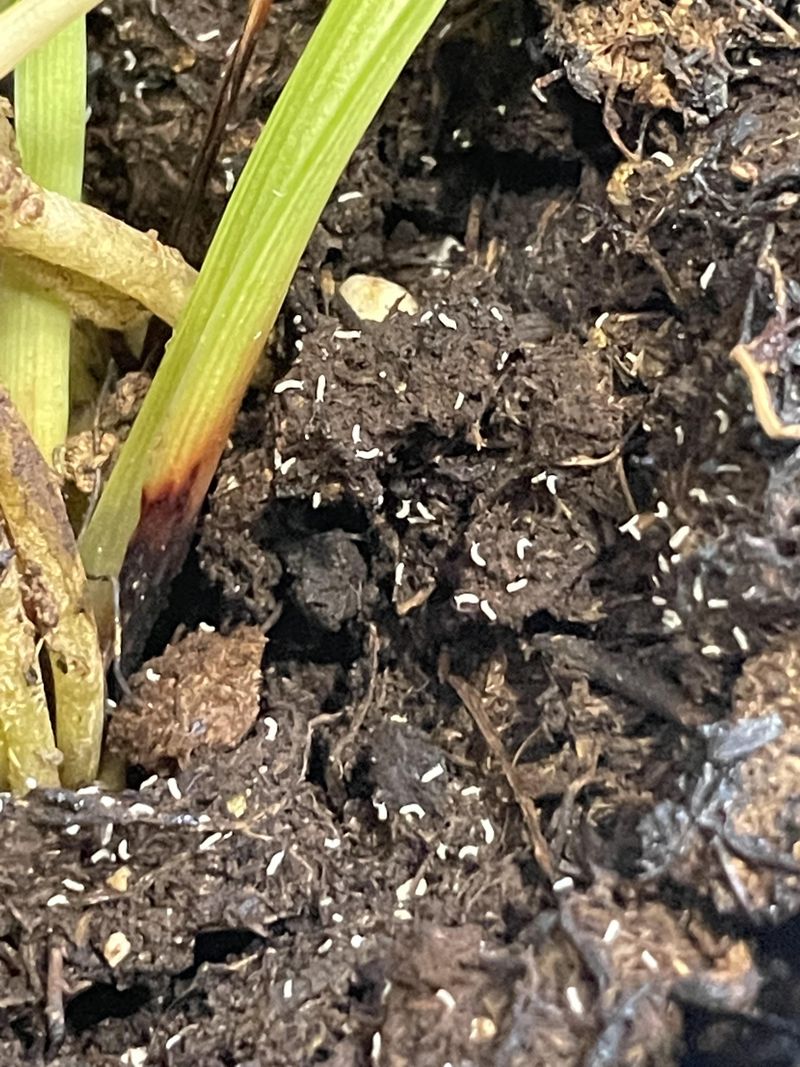
Tiny invaders like spider mites or mealybugs can drain your plant’s energy, leaving nothing for pup production. These pests are sometimes hard to spot without close inspection.
Examine the undersides of leaves and leaf joints for webbing, sticky residue, or tiny moving dots. Treating pest problems with insecticidal soap or neem oil might be all your plant needs to start thriving again.
9. Chemical Exposure
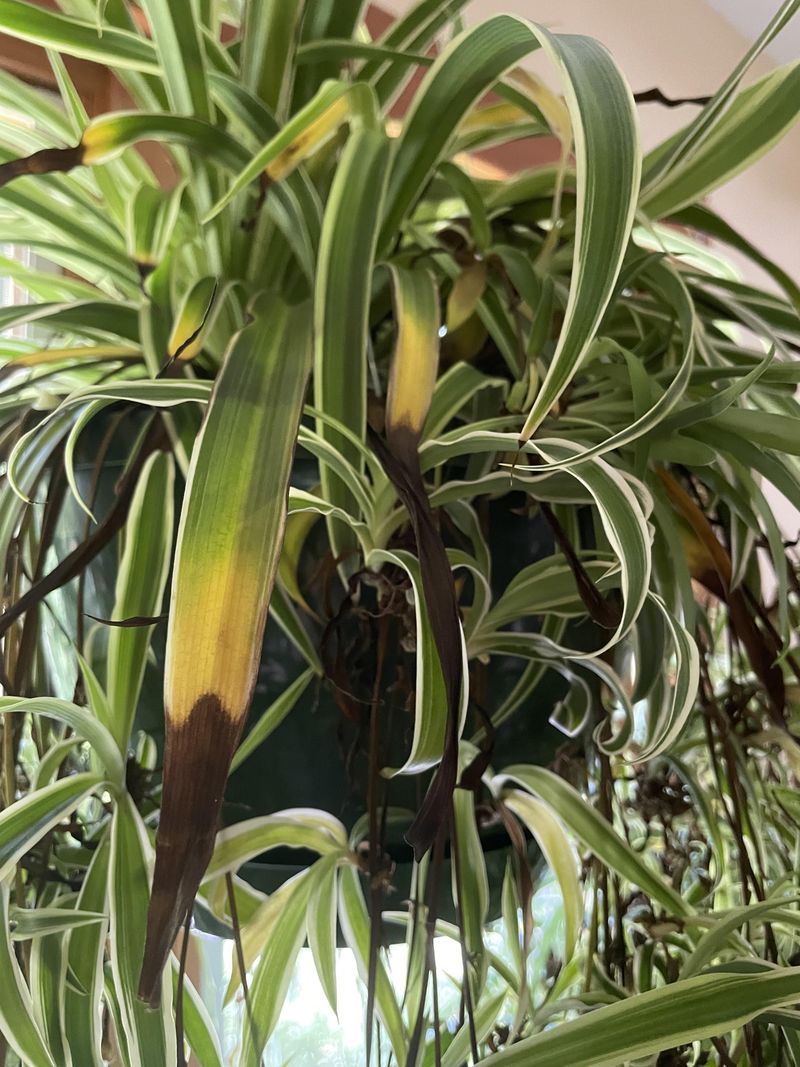
Tap water containing fluoride or chlorine can accumulate in soil over time, creating toxic conditions that prevent normal growth and reproduction. Even some household cleaning products can affect your plant.
Try switching to filtered water or leaving tap water out overnight before watering. Keep plants away from areas where you use aerosol sprays, and avoid using leaf shine products that can clog the plant’s pores.
10. Lack of Flowering
Spider plants produce pups only after sending up small white flowers. If your plant isn’t flowering, it won’t have the chance to grow those baby offshoots.
Encourage blooms by giving your plant bright, indirect light and keeping it slightly root-bound. Once flowers appear, pups usually follow shortly after, dangling gracefully from long stems.

